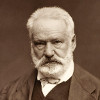“ However full of sadness a man may be, he is happy for the time, if you can prevail upon him to enter into some amusement; and however happy a man may be, he will soon be discontented and wretched, if he be not diverted and occupied by some passion or pursuit which prevents weariness from overcoming him. Without amusement there is no joy; with amusement there is no sadness. ”
Blaise Pascal, Pensées (1670). copy citation
| Author | Blaise Pascal |
|---|---|
| Source | Pensées |
| Topic | sadness amusement |
| Date | 1670 |
| Language | English |
| Reference | |
| Note | Translated by W. F. Trotter |
| Weblink | http://www.gutenberg.org/files/18269/18269-h/18269-h.htm |
Context
“Whence comes it that this man, who lost his only son a few months ago, or who this morning was in such trouble through being distressed by lawsuits and quarrels, now no longer thinks of them? Do not wonder; he is quite taken up in looking out for the boar which his dogs have been hunting so hotly for the last six hours. He requires nothing more. However full of sadness a man may be, he is happy for the time, if you can prevail upon him to enter into some amusement; and however happy a man may be, he will soon be discontented and wretched, if he be not diverted and occupied by some passion or pursuit which prevents weariness from overcoming him. Without amusement there is no joy; with amusement there is no sadness. And this also constitutes the happiness of persons in high position, that they have a number of people to amuse them, and have the power to keep themselves in this state.
Consider this. What is it to be superintendent, chancellor, first president, but to be in a condition wherein from early morning a large number of people come from all quarters to see them, so as not to leave them an hour in the day in which they can think of themselves?”
source



